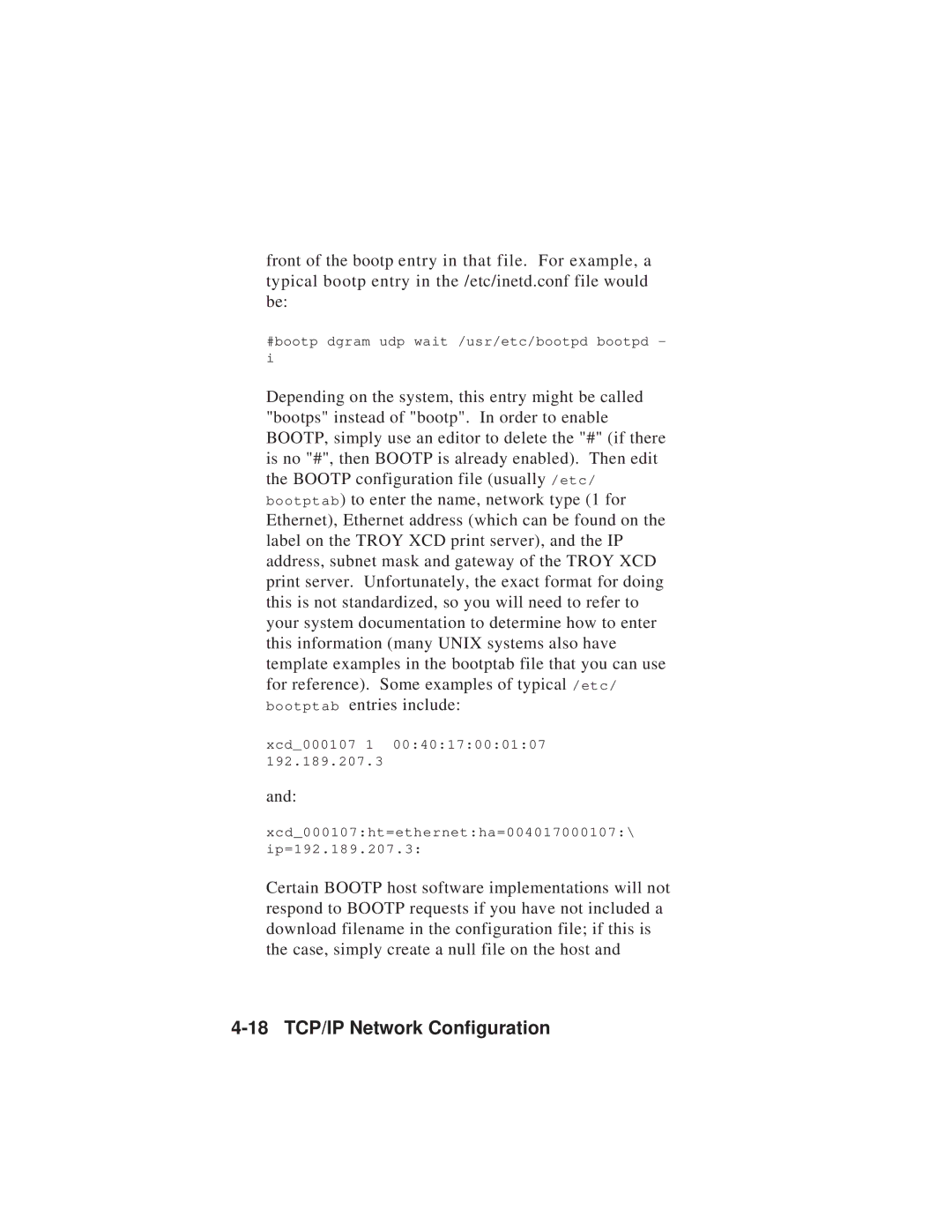front of the bootp entry in that file. For example, a typical bootp entry in the /etc/inetd.conf file would be:
#bootp dgram udp wait /usr/etc/bootpd bootpd - i
Depending on the system, this entry might be called "bootps" instead of "bootp". In order to enable BOOTP, simply use an editor to delete the "#" (if there is no "#", then BOOTP is already enabled). Then edit the BOOTP configuration file (usually /etc/ bootptab) to enter the name, network type (1 for Ethernet), Ethernet address (which can be found on the label on the TROY XCD print server), and the IP address, subnet mask and gateway of the TROY XCD print server. Unfortunately, the exact format for doing this is not standardized, so you will need to refer to your system documentation to determine how to enter this information (many UNIX systems also have template examples in the bootptab file that you can use for reference). Some examples of typical /etc/ bootptab entries include:
xcd_000107 1 00:40:17:00:01:07 192.189.207.3
and:
xcd_000107:ht=ethernet:ha=004017000107:\ ip=192.189.207.3:
Certain BOOTP host software implementations will not respond to BOOTP requests if you have not included a download filename in the configuration file; if this is the case, simply create a null file on the host and
